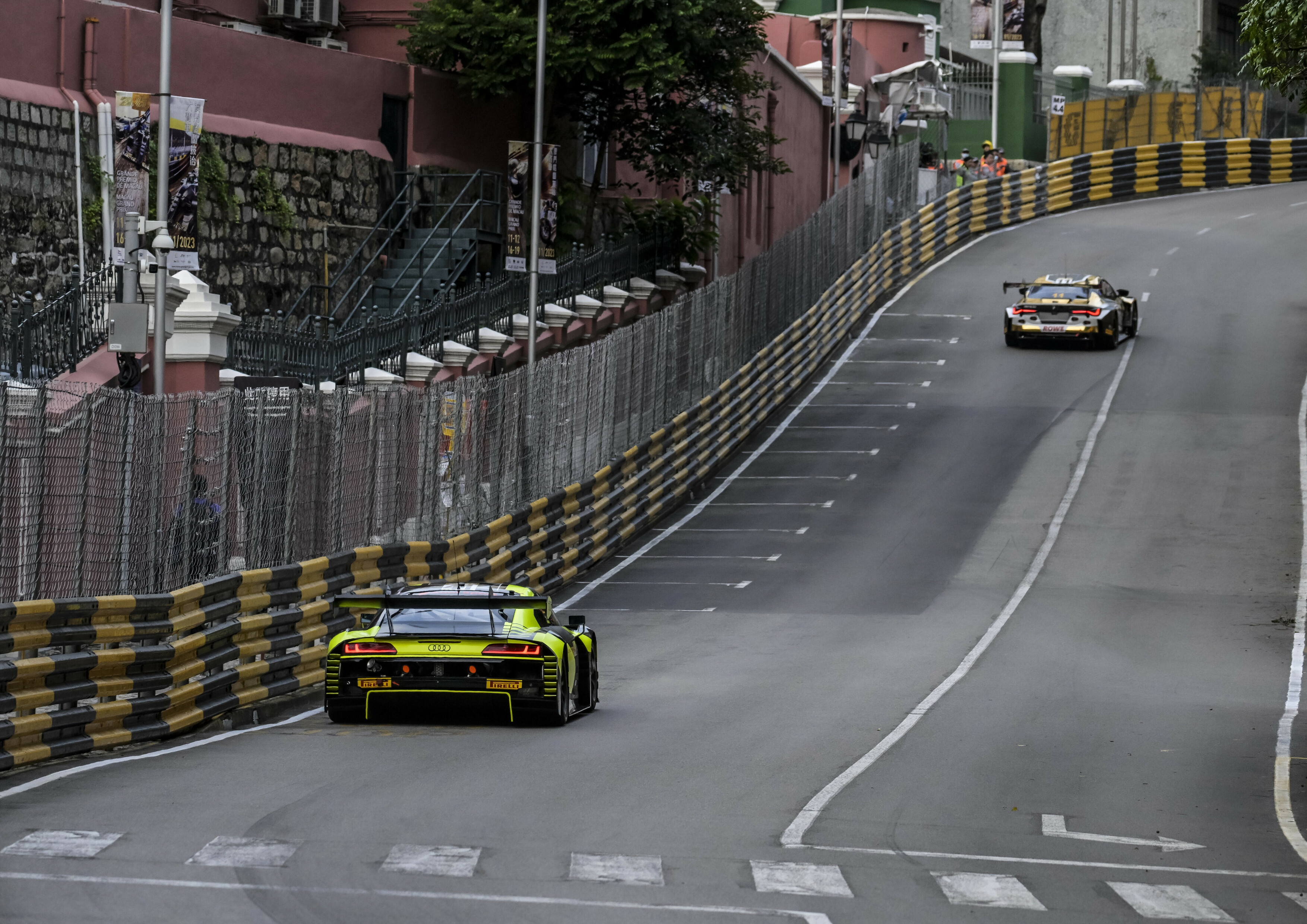
The seventh running of the Macau GT Cup – FIA GT World Cup features one of the most impressive grids ever seen in the world’s premier GT3 sprint race. Yet, a frequent question in Macau is why the FIA GT World Cup retains its prestigious title when not all GT3 manufacturers are represented.
GT3 racing has become a global showcase for manufacturers, offering an ideal platform to demonstrate both performance and engineering prowess. It allows manufacturers to develop race cars based on their production models, creating a direct link between what fans see on the track and what they can drive on the road.
In 2024, Chevrolet and Ford introduced their first GT3 cars—the Corvette Z06 GT3.R and Mustang GT3, respectively—yet neither American manufacturer will be present in Macau. There were rumours that Corvette had considered a potential entry, while Ford is still searching for a team to compete in Asian races.
“The simple reason is that we do not have a customer Mustang GT3 team competing at Macau this year,” a Ford Performance Motorsports source confirmed to MNA.
However, strong recent entries from brands like Ferrari and Lamborghini, alongside the dominant German manufacturers, are further elevating the prestige and excitement of this iconic race. Since its founding in 2017, Porsche Motorsport Asia Pacific has built a storied history at Macau, supporting customers every year that the race has been held. This year, five Porsche 911 GT3 R (992) cars will compete in the FIA GT World Cup.
According to Alexandre Gibot, Managing Director of Porsche Motorsport Asia Pacific: “Macau is one of the highlights of the year, not just in Asian motorsport, but in the entire sport. We’re delighted to be returning to the famous FIA GT World Cup with a very strong quintet of cars. We’ve got three excellent teams and five world-class drivers taking on the event, so we’re looking to compete for the podium and victory at the world-renowned Guia Circuit.”
Rival GT3 manufacturer Audi is also keen to return to the challenge of the Guia Circuit, fielding a four-car entry with the R8 LMS GT3 evo II.
“The Macau Grand Prix is always the absolute highlight of the Asian calendar, and this year, together with our customer teams, we have assembled a strong GT Cup line-up that represents the full spectrum of the global Audi Sport driver pool,” said Alexander Blackie, Head of Audi Sport customer racing Asia. “With hundreds of thousands of fans lining the famous downtown Guia Circuit every year, the atmosphere is always electric. We cannot wait to get started.”
The influential SRO Motorsports Group, which has co-coordinated the FIA GT World Cup since its inception, understands the challenges of bringing manufacturers to the Macau arena.
“It’s no coincidence that manufacturers with the largest customer bases in Asia – Porsche, Mercedes-AMG, and Audi – have been most prominent at Macau over the last decade. But that is changing, especially thanks to the variety now competing in Fanatec GT Asia. For instance, VSR [Lamborghini Squadra Corse-supported team Vicenzo Sospiri Racing] is heavily invested there, so it’s natural to see it running cars on Lamborghini’s behalf at Macau this year,” SRO Motorsports Group Founder and CEO Stéphane Ratel explained to sister publication Macau Business.
“Of course, we would love for every manufacturer to be represented, and I know others are looking,” Ratel added. “But the budget to send a car, personnel, and equipment from Europe or America specifically to Macau is not insignificant. Manufacturers often partner with their existing local representatives, but that’s much harder if resources aren’t already in the region.”
Among the major GT3 players, only British manufacturers Aston Martin and McLaren are absent, primarily due to their limited presence in the Asian market, despite Aston Martin’s regular participation in the GT World Challenge Asia and Japan Cup. While Audi appears to be gradually stepping back from GT racing to focus on its F1 programme, Toyota/Lexus is developing a new GT3 car, expected to join the grid in 2026.
The FIA GT World Cup comprises two 30-minute practice sessions, followed by a single qualifying session of the same duration. The racing action will unfold over two heats, beginning with a 12-lap qualifying race, followed by a 16-lap main race that will determine the title.


